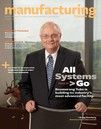CHANGE Spoken Through The Years
 “Everybody has accepted by now that change is unavoidable. But that still implies that change is like death and taxes—it should be postponed as long as possible and no change would be vastly preferable. But in a period of upheaval, such as the one we are living in, change is the norm.”
“Everybody has accepted by now that change is unavoidable. But that still implies that change is like death and taxes—it should be postponed as long as possible and no change would be vastly preferable. But in a period of upheaval, such as the one we are living in, change is the norm.”
The famed Peter Drucker, widely considered to be the father of “modern management,” wrote about change in his book, Management Challenges for the 21st Century (1999).
The period of upheaval Drucker wrote about was minor compared to what we are experiencing today. Regardless, his view of the necessity for change could not be more accurate.
As a business manager or owner standing on the sidelines and watching, hoping that all will right itself without intervention is a baseless dream. That dream will turn into an owner’s worst nightmare. These turbulent times require swift, decisive action on a proactive strategic basis.
Management’s inability or lack of willingness to pull the trigger on change will most definitely translate to endangering success.
“Whosoever desires constant success must change his conduct with the times,” wrote Machiavelli. That was as true some 500 years ago when he wrote that and it is true today.
The word “change” has taken on visual meaning in today’s world driven by President Obama’s eloquent words. His macro view of needed global change can be replicated in the global view of one individual company. Change is never easy. The view from the side of the unknown is always less comfortable than the view from the side we know—even if that side is broken. Because of this, most managers are reluctant to implement change. In good times this does not work, and companies barely survive by struggling on a daily basis. In today’s world, companies simply go out of business.
Dr. Martin Luther King, Jr. made this point clear when he said, “Change does not roll in on the wheels of inevitability, but it comes through continuous struggle.”
Even though Dr. King said the words in the context of human and civil rights, they are just as appropriate when applied to business. Given the economic challenges faced by businesses today, the time to struggle with decisions around change has passed. Now is the time to embrace change and march forward without looking back over one’s shoulder.
In The Prince written in 1532 by Machiavelli, we can find this quote:
“There is nothing more difficult to take in hand, more perilous to conduct, or more uncertain in its success, than to take the lead in the introduction of a new order of things.”
Some 477 years later, there is nothing more perilous in business than not taking the lead in introducing a new order. Refusal to implement immediate, well thought out strategic change is tantamount to pre-designating a quick demise. The choice is simple. Success or failure. Which will you choose?







